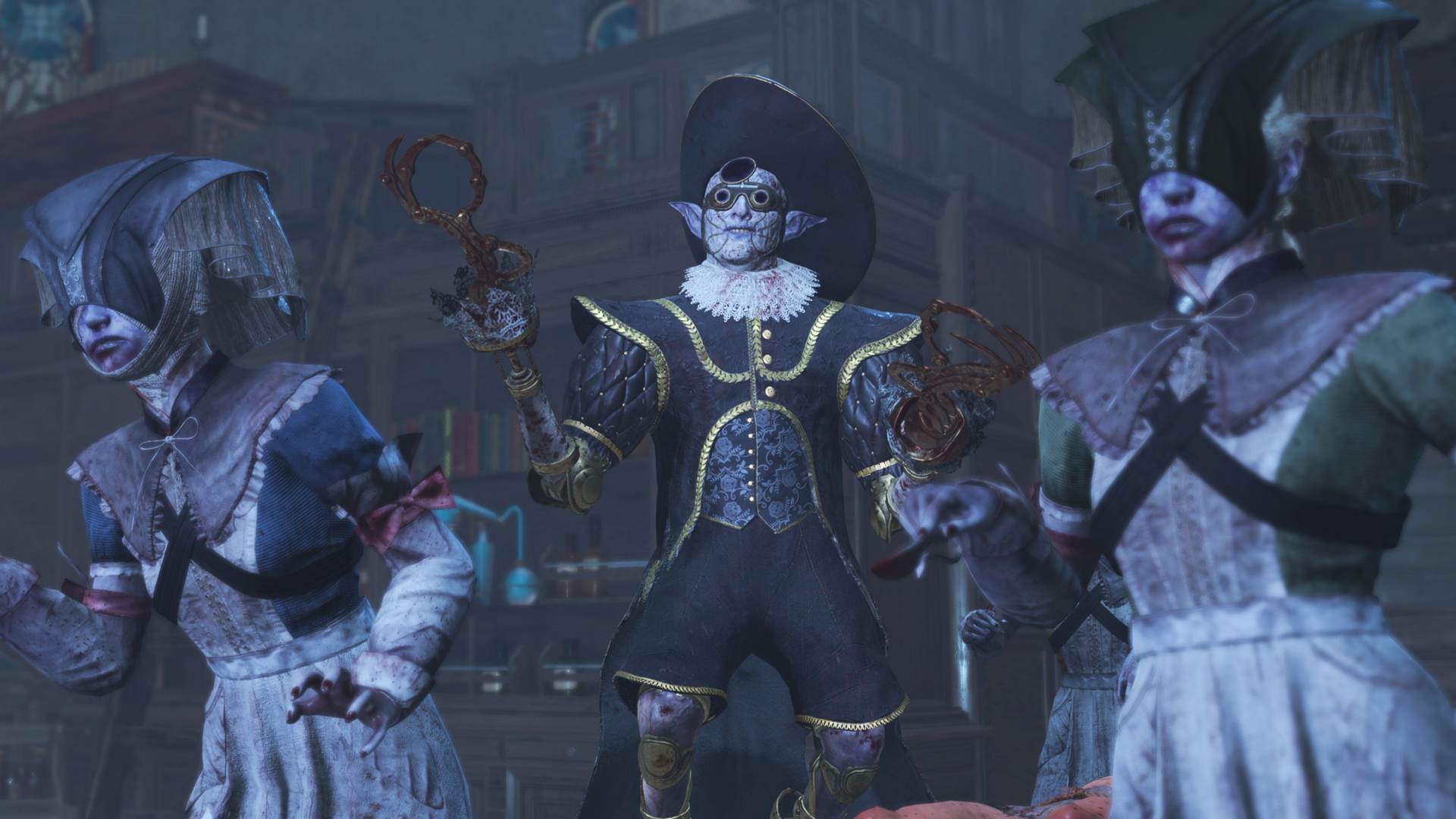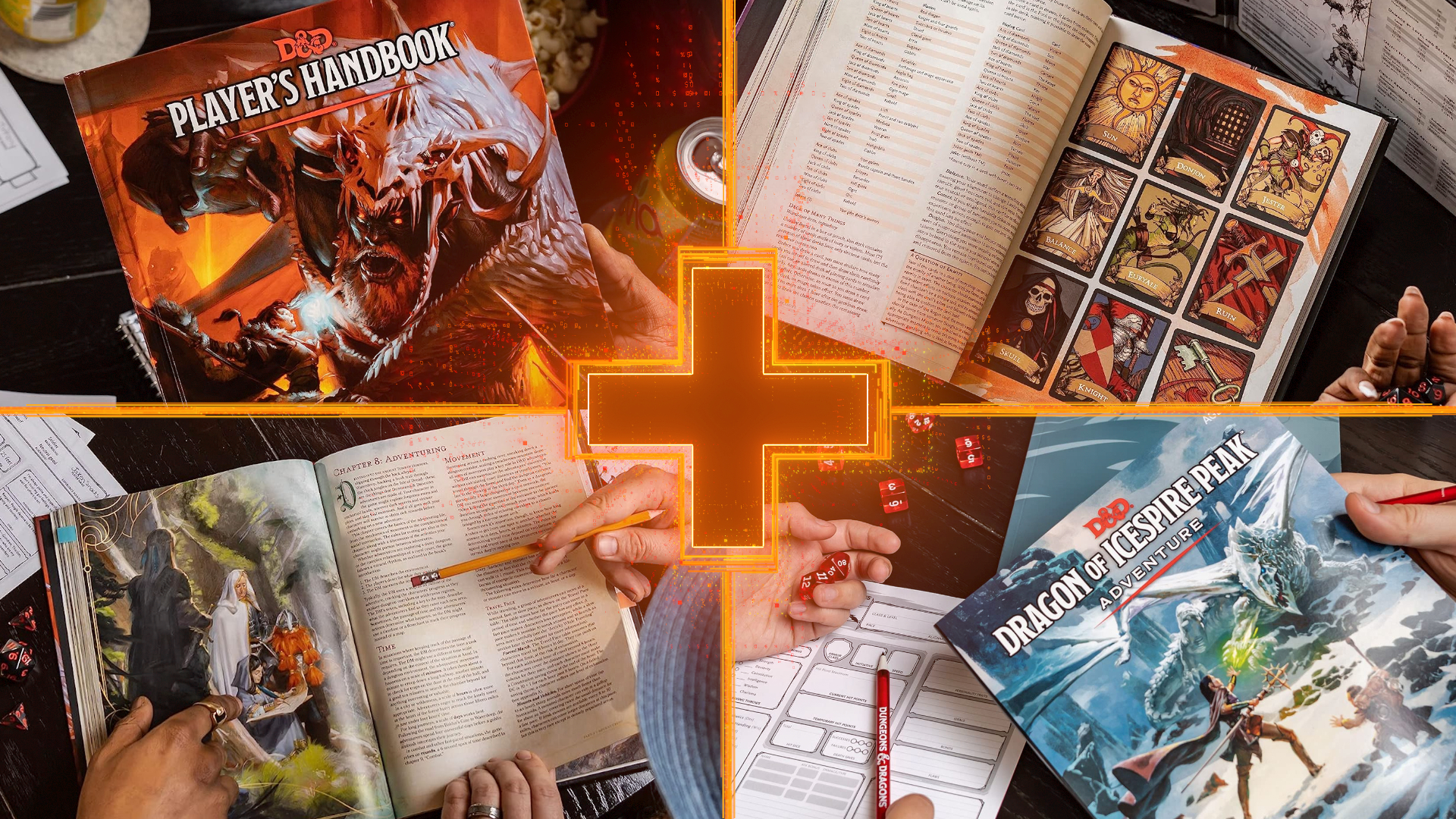
In the days after Baldur's Gate 3 came out, I observed a subtle rift within its audience. While the response to the game was overwhelmingly positive, there was a notable divide between players who were finding even the first few hours genuinely difficult, and those who were rattling through the first act. I saw it on social media, I saw it among my friends and colleagues. And over time, I came to realize that there was a single factor fuelling that divide: how well the player knew D&D.
It's no secret that Baldur's Gate 3 is a pretty direct adaptation of Dungeons & Dragons 5th Edition. While Larian has made a few tweaks to rein in some of D&D's most complex mechanics and broken spells, its CRPG remains a faithful digital reincarnation of the classic TTRPG. That means that some legends of the game feature throughout Baldur's Gate 3 – Magic Missile, Sneak Attack, and Bards with +6 Persuasion, to name a few – but it also means that some of D&D's more complicated ideas have stuck around.
Take Proficiency. In some instances a handy boost to stat rolls, it's readily apparent why a Rogue would want to be proficient in their Sleight of Hand check to help them pick a lock. It's less clear, however, why a slightly-too-heavy pair of boots would prevent my Wizard from casting spells, but both events are governed by each character's inherent abilities. In Baldur's Gate 3, the only way to become proficient in something new is to use Feats – only available on certain level-ups and for certain attributes. Otherwise, you'd better find Gale some fetching sandals.

Or how about Concentration? If I cast a spell, I might expect the full effect of that spell to be felt on the battlefield. Unfortunately, that's not always the case in D&D, a game in which some spells require the caster to actively concentrate on them in order to persist. Take a hit, and you'll have to succeed on a Concentration-saving throw to maintain your spell. Cast another spell that requires Concentration, and that first spell is over. In practice, that often means casting something and then sprinting as far from the fight as you can get, but while that makes sense for a squishy wizard, it's less obvious why your heavily-armored cleric might want to shy away from the battle.
Even something really simple, like the classic D&D loop of Movement-Action-Bonus Action, might not be immediately apparent, especially depending on your class. From there it only gets more complicated. What about reactions? Attacks of opportunity? Why can some spells be cast as much as you like, but others have limited Spell Slots?
Concentration save
In a game as deep and as complex as Baldur's Gate 3, it's clear why a significant knowledge gap might emerge. That knowledge gap is leaving some players behind while others shoot ahead, and it's why veteran D&D fans were chiming in to explain Baldur's Gate 3's systems to newcomers ahead of release. It's why the in-office tabletop groups have dived straight in without a hitch while my other colleagues are still stumbling towards the Goblin Camp. It's why my partner, who has never played a CRPG in her life, knows exactly what I'm talking about when I tell her about the game, while some of my colleagues need the idea of an initiative roll explained to them.

If you do fancy getting stuck into D&D proper, check out our list of the best Dungeons and Dragons books.
Of course, plenty of the information necessary to enjoy Baldur's Gate 3 is tutorialized, but when the game director says that the entirety of the game's first act is a 20-hour tutorial, it's easy to see why certain systems might get lost in the chaos. And it's still easy to make a mistake, even as a D&D veteran. I'll confess to having let a Shield of Faith fall from my tank in my excitement to cast Spirit Guardians – but when I do it, I know where I've slipped up. When a D&D newcomer does it, that crossed out 'Concentration' debuff above their character might not immediately correlate to Karlach's AC dropping by a couple of points.
Sign up to the GamesRadar+ Newsletter
Weekly digests, tales from the communities you love, and more
Intelligence roll
Unfortunately, in my experience, the only way to get better at learning D&D's ruleset is by direct exposure to D&D. Baldur's Gate 3 does probably count for that, but you're certainly taking the hard road if you're committed to fighting through the learning curve mid-game. The absolute best way to learn is by playing, with an experienced Dungeon Master on-hand to guide you through the game's greatest intricacies – but a good DM is hard to find, and so is a group of friends to regularly commit to hours of tabletop roleplay. The easiest way to pick up the most knowledge quickly is probably by listening to an actual-play D&D podcast like Critical Role, Dimension 20, or The Adventure Zone: Balance, but those will set you back anywhere from 15 to 300 hours, depending on how invested you get. Sadly, adaptations like the recent Dungeons & Dragons movies or the Legend of Vox Machina animation won't help you much either, as they aren't really interested in explaining the rules of their source material.
As complex as it might be, it's clear that Baldur's Gate 3 has found an audience well beyond the traditional D&D and CRPG crowd, and that many of those total newcomers to the genre are throwing themselves into the game without worrying about what they may or may not know about tabletop games. That's testament to how good Baldur's Gate 3 is even when you're not neck-deep in D&D ideas, and perhaps to the power of a particularly lust-inducing cast. A background in turn-based strategy games, or in Larian's Divinity series, will probably get you pretty far, regardless of your D&D experience. But if you're coming to games like Baldur's Gate 3 completely fresh, there's no substitute for hundreds of hours of manual dice-rolling. Thankfully, for a game this long, that means there'll probably still be plenty of people playing it by the time you catch up.
Check out our Baldur's Gate 3 review to find out exactly what we thought of this stellar RPG.

I'm GamesRadar's news editor, working with the team to deliver breaking news from across the industry. I started my journalistic career while getting my degree in English Literature at the University of Warwick, where I also worked as Games Editor on the student newspaper, The Boar. Since then, I've run the news sections at PCGamesN and Kotaku UK, and also regularly contributed to PC Gamer. As you might be able to tell, PC is my platform of choice, so you can regularly find me playing League of Legends or Steam's latest indie hit.


